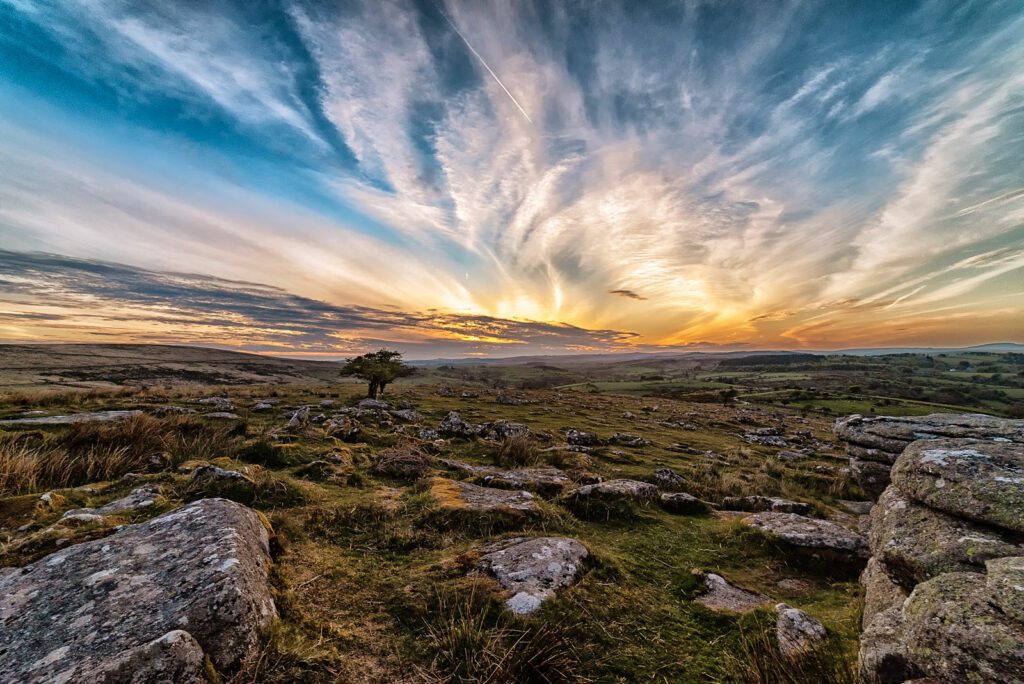The idea of escaping from the ‘always on’ work culture and heading out into the countryside with nothing but a backpack for company has become increasingly popular, especially since the pandemic. Whilst alluring for many, it can create problems for landowners. We look at the rules applying in England, Wales and Scotland and consider whether it is legal.
In England
Wild camping is the act of camping anywhere other than a designated campsite and usually requires the landowner’s permission to prevent a person committing the civil tort of trespass. In the UK, there are two very well-known exceptions to that requirement being wild camping in Scotland, and wild camping on Dartmoor National Park’s commons.
Dartmoor National Park has a unique legal framework; it is subject to legislation which applies to all of England and Wales, but it also has an additional bespoke statute, the Dartmoor Commons Act 1985. The 1985 Act empowers the Commoners Council to impose and enforce regulations in relation to Dartmoor’s privately owned common land, which comprises 40% of the Park’s land. The aim of the regulations is to fulfil the objective to maintain the commons and promote proper standards of livestock husbandry.
The High Court decision earlier this year in Darwall v Dartmoor National Park Authority [2023] EWHC 35 (Ch) sparked a large debate over upland areas across England, Scotland and Wales with regards to the competing demands and objectives of agriculture, recreation and wildlife conservation and those of private common landowners and occupiers of the National Park.
Section 10(1) of the 1985 Act provides the public with a right of access to the common land on foot and on horseback for the purpose of “open-air recreation”. The dispute between Dartmoor National Park Authority (DNPA) and Mr and Mrs Darwall (the sixth largest common landowners on Dartmoor), considered this public access right in detail.
The Darwall case
The Darwalls brought a claim in the High Court against DNPA disputing the public access over their land and contending that wild camping is an environmental threat. The court was asked to consider whether the public’s right of access for “open-air recreation” included wild camping. The Darwalls contended that the scope of “open-air recreation” was limited to recreations on foot and horseback, whilst DNPA argued a wider interpretation encompassing wild camping within the definition.
Sir Julian Flaux, the Chancellor of the High Court, favoured the Darwalls more restrictive interpretation by relying on wording within the National Park and Access to the Countryside Act 1949, which considered camping to be a vehicle for recreation, and not the actual activity itself. Sir Julian held that the activity in which wild campers were engaging was actually hiking and that the act of camping was merely a facility enabling them to hike.
The DNPA appealed and the Court of Appeal ([2023] EWCA Civ 927) overturned the High Court’s decision. It concluded that the words in the 1985 Act provide members of the public the right of access granted for the purpose of open-air recreation, which includes wild camping. Sir Geoffrey Vos, in the leading judgment stated that:
“In my judgment, on its true construction, section 10(1) of the Dartmoor Commons Act 1985 confers on members of the public the right to rest or sleep on the Dartmoor Commons, whether by day or night and whether in a tent or otherwise, provided that the other provisions of the 1985 Act and schedule 2 to the 1949 Act and the Byelaws are adhered to.”
This decision means that landowners of commons in Dartmoor National Park cannot pursue an individual who wild camps on the commons for the civil wrong of trespass. This case marks a reaffirmation of the public right to wild camp on Dartmoor commons without the landowner’s express permission. One might assume that this decision would set a precedent for other parts of the UK, however it should be remembered that Dartmoor has its own particular rules which do not apply elsewhere. Landowners prior consent is therefore required in other parts of England if wild camping is intended.
In Wales
Wales, unlike England, has no exceptions to the rule of obtaining the landowner’s permission. In Welsh national parks such as Eryri (Snowdonia), Pembrokeshire Coast and Bannau Brycheiniog (Brecon Beacons), the landowner’s permission to wild camp must be sought before striking camp, otherwise the camper commits the civil offence of trespass. Some national park authorities have already sought local landowners’ consent to wild camp on their land in the National Park and a list is readily available to the public.
In Scotland
Scotland’s rules are different again; it is the only part of the UK with laws in favour of wild camping. The Land Reform (Scotland) Act 2003 provides the pubic with the right to roam in Scotland across most unenclosed land. However, there are some areas, such as Loch Lomond and the Trossachs National Park, which are protected and subject to wild camping local byelaws, which enforce restrictions due to overuse at popular sites.
